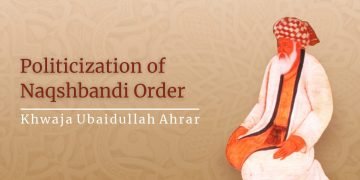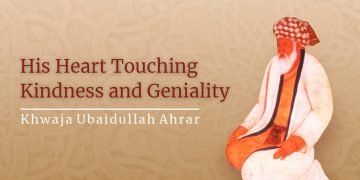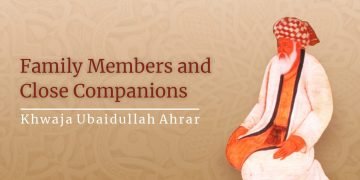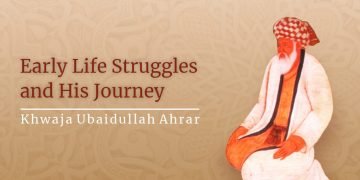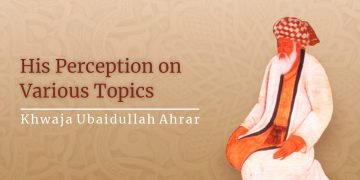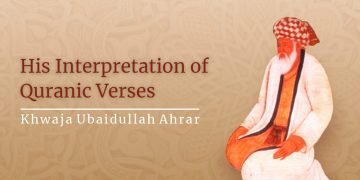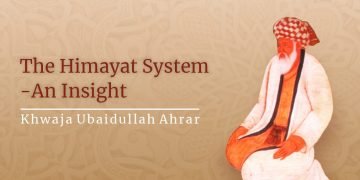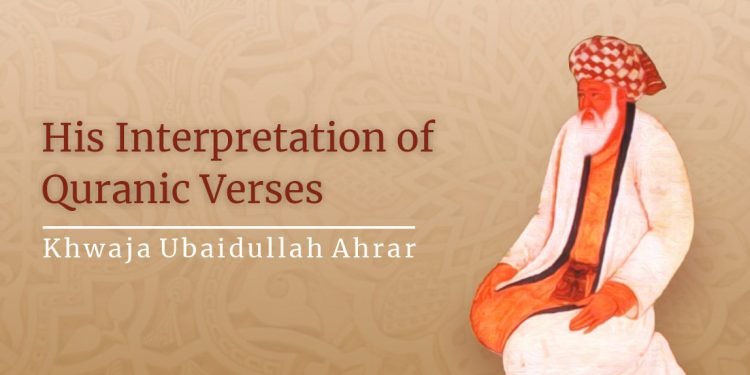Khwaja Ahrar’s Interpretation of Quranic Verses, He was blessed with such wisdom and insight that he would grab the instant attention of his audience. From his early life, he invested his time comprehending God’s messages, he could spend hours at deserted places contemplating the meaning of existence and this is the reason his interpretation of the Quran is very insightful and inclusive. For those who know that this book has all the answers, Khwaja Ahrar has explained many verses in such a comprehensive and compelling manner that one feels swayed by the details he has given.
Verse (34:13) “And few of my servants are very Thankful.”
According to Khwaja Ahrar, Thankfulness is a gesture of a servant’s acceptance of the Giver who is very kind. There are many Quranic verses that point towards thankfulness and its perks. The reason is if a person thanks for the blessings, God always gives more since He likes gratefulness, it’s one of the virtues He values. So if you want God to be more kind, start being grateful for every blessing you have. It surely will increase your humbleness and piousness. Khwaja Ahrar has very astutely explained the essence of prayer, which is thanking and praising the Lord.
Verse (35:32) “And among them is the one who oppresses his lower self,
And among them is the one who acts with moderation and among them is the one who outstrips good deeds.”
Khwaja Ahrar interpreted the above Quranic Verses referring to the people who deny the desire of lower self. They accept the divine gift and hence these are the people who are moderators and righteous as compared to other groups who fall for worldly wishes. So God has clearly shown the path and real believers would follow it. Those who are allured by their vested pursuits would, however, ignore the signs.
Verse (36:10) “It is the same to them whether you warn them or do not warn them, for they don’t believe.”
Khwaja Ubaidullah Ahrar explained the above verse pointing the group of people who mull over what is true and real. They would dig out what is true and this is the reason they won’t believe in anything or anyone other than the Lord.
Verse (35:15) “O human beings, you are the poor in your relation to Allah.”
No one has deduced the above verse as beautifully as Khwaja Ahrar. He interpreted the above verse as, the Lord understands the needy nature of humans; He knows a human being needs water, bread and other necessities to live. So this need is nothing but humans’ dependence on the Lord, all that a person needs whether it is wealth, wisdom, love, success or basic necessities can’t be earned without turning towards God.
The venerable Khwaja further explained this verse one day during a gathering; he said: “Instead of wandering purposelessly, you should do something meaningful so that your fellow humans could benefit from your endeavors.”
Verse (40:16) “Whose is the sovereignty this day?”
Khwaja Ahrar explained this verse in the following words, he said for those who seek spiritual journey must know that their heart doesn’t belong to anyone but the Lord. They should make their heart and soul so filled with the remembrance and love for Allah that there is no space left for anything or anyone.
What an amazing comprehension for those whose sole endeavor is to find their Lord. There are many other verses that have been elucidated by Khwaja in more marvelous words. He would give examples from daily life to make it easy and relatable for his followers to understand the Quran.
Verse (1:1) “Praise be to Allah, the Lord of all the Worlds.”
This verse from Surah Fatiha has been interpreted by Khwaja Ahrar in detail. He explained that praising the Lord has two meanings; one is the realization of a person that is thankful to the Lord would multiply the blessings and second is the fulfillment of the responsibility as praising God becomes an act of appreciation for obeying Allah. A servant can only attain betterment if he/she realizes that all praise, qualities, and power belong to the Lord. So praising God has many meanings and benefits that a believer can consummate at different levels.
Khwaja Ahrar used to comment and elucidate various Quranic verses in spiritual gatherings of his followers. He would give abominations and references from the Holy book to make his point about various matters. His prime concern however always remained that people should be helpful towards each other; life is more about creating ease and purpose for other humans.
He could quote Quran to validate this and tell his followers that Kindness is God’s trait that he wants his servants to manifest. Many of his interpretations and commentaries are about the spiritual journey that helped the followers to understand the essence of Sufism. As it wasn’t a mere journey, it was cleansing of the heart and soul and that was the reason it wasn’t an easy path.
History books have several accounts of his wise comments on various Quran’s verses and Prophetic traditions. These are still a gateway for his followers towards understanding the meaning of existence and the relationship of God with humans.
Unlike other spiritual leaders, Khwaja Ahrar would give sermons to a wider audience about verses of the Quran rather than compiling them in writing, he would want people to listen to the details instead of reading them and this practice was very sagacious as it got his followers well-acquainted with Quran and Prophetic sayings and traditions that were of relevant reference to everyday issues.
The followers of Khwaja Ahrar gathered his enlightening remarks on Quran and these still serve as a valuable asset to understand the Holy book and its teachings. Another striking aspect of his comments and interpretation is that he has explained in detail various verses that one can find mind boggling or having multiple meanings, he truly has solved the confusion and has made it easier for the readers to comprehend Quran.


